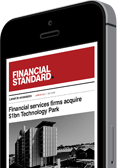Commercial real estate optimism ticks upBY ANDREW MCKEAN | THURSDAY, 18 APR 2024 12:39PMThe overall sentiment of global corporate real estate leaders has improved to its highest level since Q2 2022, according to a survey by Knight Frank. The real estate group asked the leaders to rate several sentiments around growth, portfolio, and workplace. The survey found that the corporate subsector sentiment of commercial real estate is at 34.28%, which is a 2.45% increase from the previous quarter. Knight Frank chief economist Ben Burston said the research showed sentiment was steadily increasing as corporate occupiers respond to an improving global economy and implement their evolving workplace strategies. "While we are still going through a period of subdued growth, corporate occupiers are starting to look ahead to the economy picking up in the second half of the year. Alongside this, they are increasingly ready to implement changes to workplace strategy after reconsidering their approach over the past two years," he said. "More occupiers globally and in Australia are choosing to relocate core functions in response to growing physical and functional obsolescence. This is raising the bar on sustainability as tenants are seeking to secure highly accredited green buildings at the point of relocation wherever possible. "While sentiment is improving and many tenants are choosing to upgrade, there is a renewed focus on densification and productive utilisation so in spite of strong employment growth, demand is not feeding through to an expanding footprint to the same degree." Knight Frank head of global portfolio solutions, Australia Francesco Demarco said that whilst there were expectations of a stabilising global economy, largely due to cooling inflation, in Australia 2024-2025 was still likely to be a period in which businesses were focused on driving company performance through greater efficiencies, including through the optimisation of real estate portfolios. "Effectively, we're seeing companies trying to 'do more with less'," he said. "Naturally, we're seeing a lot more companies wanting greater use from the real estate they are paying for, which is driving some sectors back to the office, some with stronger return to work mandates." However, purportedly not many organisations are expanding their footprint as a result. "It's a fascinating time for corporate real estate leaders. There are several dynamics occurring in the market across different sectors, but overall, there is a focus on productivity. How teams work together has structurally changed, and this is clearly impacting the workplace," he said. "Whilst everyone is trying to figure out what their 'utopia' looks like, the one constant is that most companies currently seem to be very focused on driving greater cost efficiency through their real estate strategies." Related News |
Editor's Choice
ASIC hits back at parliament: 'Simply not realistic'
The risks and opportunities in advice: SIAA
AMP Advice partners with BlackRock and Lonsec
Succession planning troubles family offices: J.P. Morgan
Products
Featured Profile

Fiona Mann
BRIGHTER SUPER

























